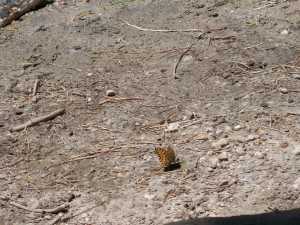
The temptation is to think that this is how to fight back. That what we do or don’t do right now is how we say who we are and what we will or won’t allow. That it is all we say about that. It’s a temptation because we don’t talk like this every day, on the ordinary, rainy, work-kind-of-sucked-today, what-will-I-make-for-dinner-now Monday.
The news from yesterday’s Boston Marathon is awful. There is good reason to lace up your shoes and push yourself to go out for a run, or to start training for next year in Boston. These are healthy, faithful responses to the violence and they ring out as a resounding, collective “No!”
But what will you do tomorrow or next month? As you carry out your daily work or make your way through classes or care for your family or encounter opportunities to engage in your community? How will your approach to these ordinary, everyday, non-national-news days reflect who you are and what you value?
Here’s another way to ask it: What do you want to feed?
What we feed is what lives. How we feed ourselves is how we live…or die.
A diet of media anxiety, zealous anger, and well-intentioned “fighting back” tastes good right now. But it leaves you hungry later on. What will you reach for then? When the junk food of the frenzied aftermath is all gone, then what?
The New York Times recently ran an article describing the way families create narratives about where they have been and who they are – and how these choices affect the resiliency of children. There are three basic ways to tell family stories: ascending (we started out poor, worked hard, sent you to college), descending (we used to have it all and then we lost it all), and oscillating (we have had hard times and wonderful times, people in prison and others in the state capital, but through it all we are a family and we stick together). Hollywood prefers ascending or descending narratives so we see a lot of those. But the oscillating family narrative reminds me of the stories we Christians keep telling ourselves year after year. We come from a family of fools and connivers and prophets and reluctant leaders. We have been slaves, nomads, chosen, kings, outcasts, disciples, saved.
Reminding ourselves of our story helps to see that what happened yesterday is part of it. The oscillating family narrative has hit another low point, at which we remind ourselves that we have been here before and we got up before. We are at the point where we can see the hill ahead that might lead to the next high point, from where we might look back to today and remember how we started to get up even while we were still breathless and scared.
One of the wonders of social media is the way we form community online. It’s comforting to “be in this together” and in a very real way platforms like Facebook and Twitter have helped us come together over great distances and time zones and our usual affinity groups. We are a national community and in that sense what happened yesterday happened to all of us.
But here’s the tough love: Most of us were not directly affected. Most of us were not physically hurt nor did we know someone who was. So for those of us who are hurting and mad and scared and full of compassion but on the outskirts of the community, consider what you want to do next.
A few suggestions:
Shut up and leave the screens. For half an hour or the entire evening – whatever it takes to stop formulating and evaluating opinions. Enough already. You know what happened and only time and the hard work of professionals will help us to learn more. So spend time listening instead. To the people in the room, to your heart, to God.
Go for a walk. It helps to remember that the world is bigger and wider than this one thing and the only way to deal with it honestly is to see its proper size and your own proper size in relation to it. The world still includes dogs and birds and cranky children in strollers while their parents try taking them for a walk. There are cumulus clouds and blooming cherry trees. Listen and look and remember that there is heartbreaking beauty, too.
Make dinner with some people and linger over it. Raise a prayer and a glass for those who suffer. Give thanks for the ways God has brought you out of great suffering and for the Spirit who inspires the work of the first responders and other helpers. Give thanks for the way the earth uses sun and water and time to make what is on your plate. Give thanks for the hands that know how to take raw materials like this and transform them into a feast.
Buy a bottle of Prosecco for the next time you want to celebrate. Because you will. No matter what happened yesterday or 6 years ago today or five minutes ago, God will walk alongside you, every step up from this low, and bring you through pain and into joy again. Love is always stronger than death.
How we feed ourselves is how we starve…or survive and thrive. What do you want to feed? We can feed anger, fear, and powerlessness. Or we can feed bravery, be brave enough to be vulnerable and open, ferociously faithful.
Don’t be tempted to think otherwise: we have this choice every day.

Great words from a kind soul!